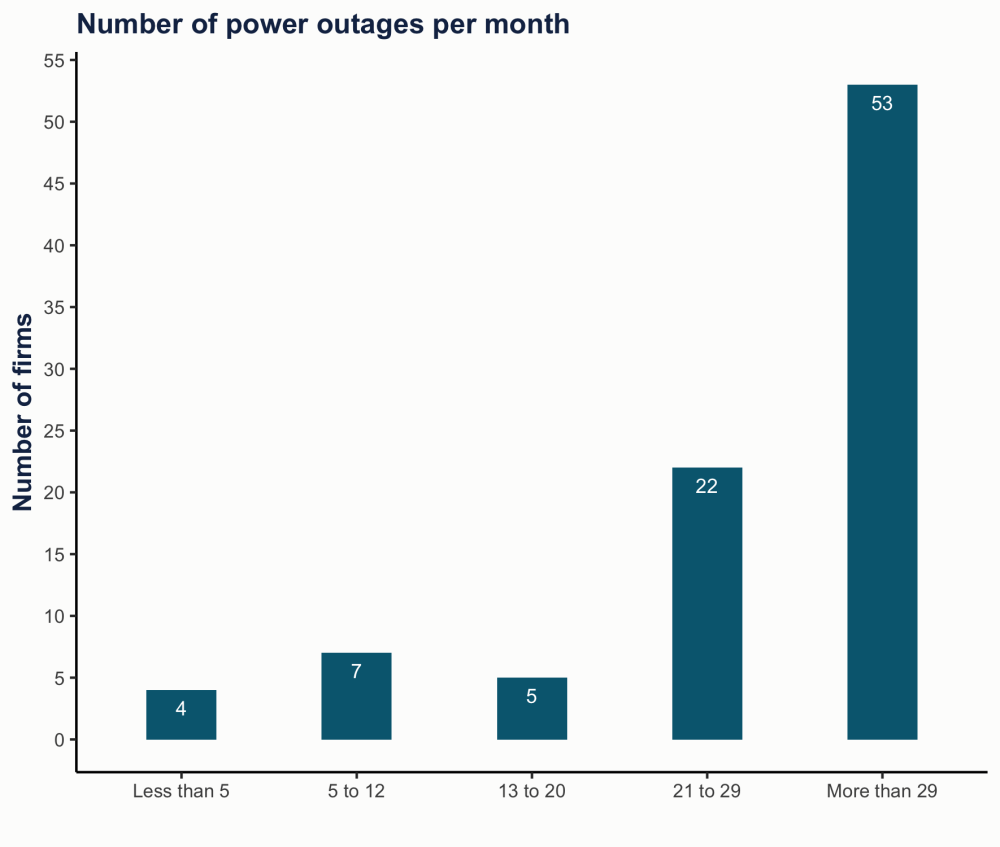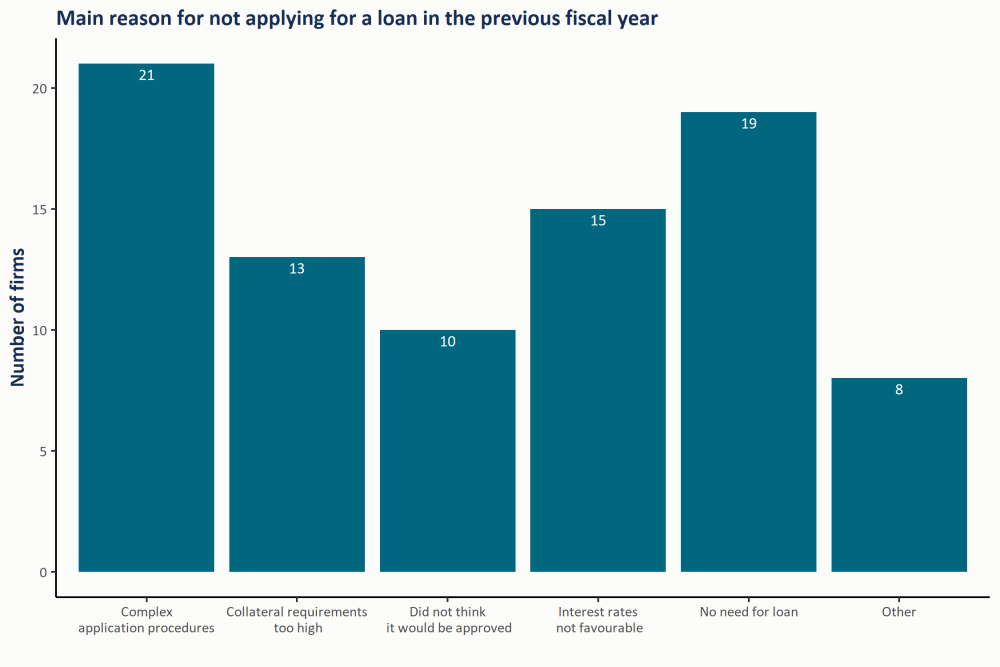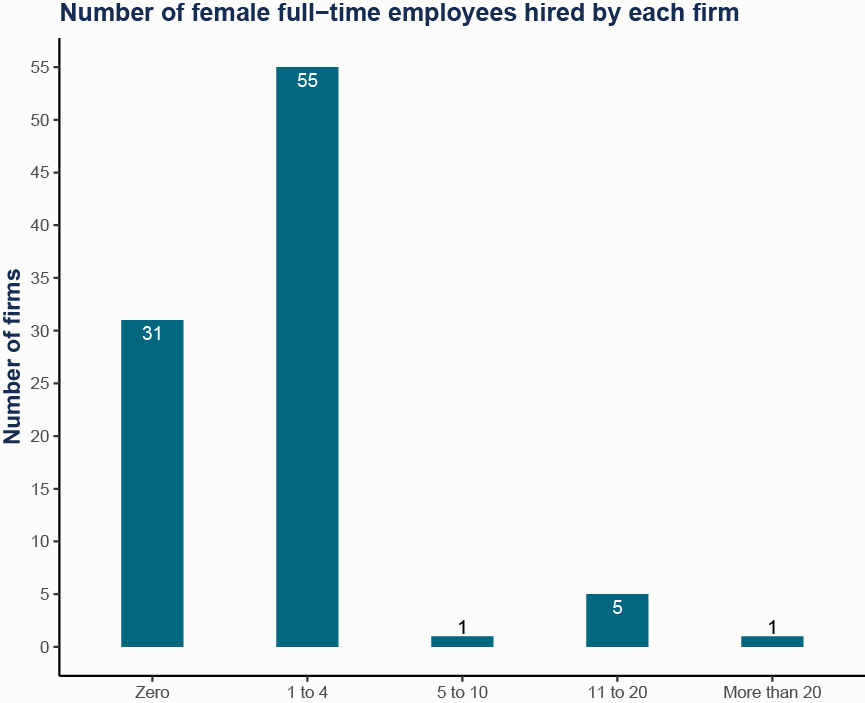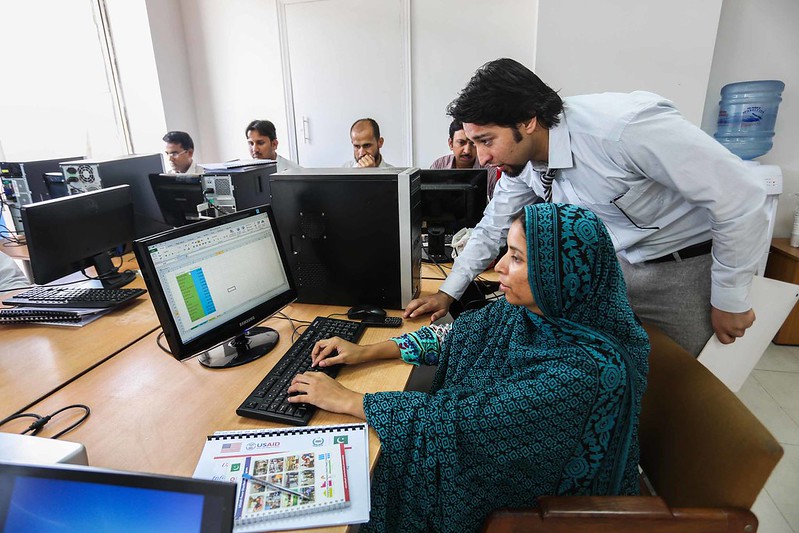Nigeria has a vibrant tech sector—but that doesn’t mean it’s easy to be a tech entrepreneur. The ONE Campaign and the Center for Global Development carried out a survey of Nigerian tech firms in the fall of 2018 that gathered data on the challenges and opportunities for the tech sector. We just put out the results. Check out the full report, or read on for the highlights.
First, a look at the landscape. Our survey shows that most tech firms are small but growing, with 5 to 10 employees, and providing e-commerce, retail and health services. Many are owned or managed by young people; managers have an average of about eight years of work experience.
Nigeria’s young tech entrepreneurs face a tough business environment, in large part due to the lack of reliable electricity. Fifty-seven percent of the surveyed firms rank electricity as a “major” or “severe” constraint to doing business, and a majority of firms report 30 or more power outages per month, with an average length of 3 hours. That means lost sales and money spent on purchasing generators instead of other investments in their growing businesses.
Finance is another big problem. Few firms have access to financial institutions or venture capitalists, relying instead on family and professional networks to fund their growth. That’s because the difficulty in assessing and managing risks associated with credit means that banks are often reluctant to lend to small enterprises. This reluctance has translated into stringent requirements by banks, which in turn, discourage small and medium enterprises from applying. Lack of adequate collateral, high rates of interest, and difficult application procedures were all often cited in our survey as major constraints for Nigerian firms seeking to obtain loans.
Tech entrepreneurs face some major hurdles in general, but we found women entrepreneurs have extra obstacles to clear. We found that tech firms employ very few women: A third of the firms in our sample employed no women at all. Women who own or manage tech firms often face discrimination, especially in financial markets where lenders are reluctant to do business with them. One owner of a fintech company decided to stop attending investment meetings, as she believed that investors related better to men. A founder of a leading tech organization told us that negative stereotypes associated with female programmers are also an impediment to women entering the tech sector.
Tens of millions of young people will enter the labor force in Africa in the next few decades. The technology sector can provide one avenue for employment, especially for high-skill workers. It is also a vital local source of expertise, not just for the introduction of e-government or digital identification, but also for strengthening the value chains of other sectors—creating jobs in those sectors as well.
How can Nigeria improve the business environment for tech companies and eliminate gender disparities? Read our report (or skip ahead to our recommendations in chapter four) to find out!
CGD blog posts reflect the views of the authors, drawing on prior research and experience in their areas of expertise.
CGD is a nonpartisan, independent organization and does not take institutional positions.









